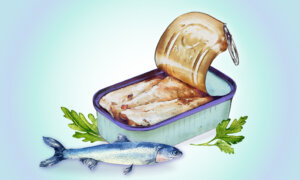In a world where stress runs rampant, many people turn to food as a source of comfort. Known as stress eating, this behavior is often driven by emotions rather than genuine physical hunger, and when it becomes habitual, your health can take a hit.
Under stress, people tend to reach for foods such as ice cream, chips, or pizza, which are often high in calories, sugars, and fats. A diet rich in such comfort foods can increase the risk of diseases, including obesity, diabetes, and cardiovascular disease. Over time, turning to food for comfort when stressed can result in feelings of guilt and weight gain, exacerbating stress and creating a harmful stress-eating cycle.
Fortunately, there are ways to curb stress eating, including strong and supportive connections with others and exercise.
Diminish Chronic Stress
A 2024 study suggests that nurturing social connections can be a powerful antidote to chronic stress eating. Fostering relationships with friends, family, and community members can create a supportive environment that alleviates stress and helps curb the urge to reach for food during tough times, stopping stress eating in its tracks.
Before digging into your favorite bag of chips because of work stress yet again, Yoobin Park, lead author of the study and a postdoctoral researcher at the Emotional Well-Being Network based at the University of California–San Francisco, suggests a simple pivot.
“If you are stressed and your impulse is to go home and eat a pint of ice cream, it might be worth reaching out to someone instead,” she told The Epoch Times in an email.
Research Findings
The study, published in an advanced online publication of Health Psychology, consisted of two separate studies.
In the first, which involved 1,264 participants, researchers examined the relationship between stress eating, body mass index (BMI), and waist-to-hip ratio over 10 years.
The researchers used eight days of diary entries to get a snapshot of the participant’s typical experiences and availability of social support. They wanted a general view to see if average levels of social resources might mitigate the long-term metabolic health effects of stress eating, Park said.
“We looked at receipt of emotional support—so whether you received support from people when you were stressed,” Park said.
In the second study of 536 participants focused on assessing stress eating and BMI at the start, along with 24 participant diary entries representing social support. They aimed to determine whether social responsiveness affected daily stress-eating behaviors and changes in their BMI.
Given the findings from the first study, Park said that the aim of the second study was to zoom in and focus on daily dynamics. The researchers increased the number of diary entries to 24 to help capture the daily dynamics.
“[We] asked people the extent to which they felt valued, understood, and cared for by others that day,” she said.
“We asked people if they felt stressed that day, and how they coped with it. One of the follow up questions was if they ate more than usual or ate foods they don’t usually let themselves eat.”
Park noted that the follow-up analyses in the second study were conducted to conceptually replicate the findings from the first study, even though the studies had different contexts.
The first study found that having supportive relationships can potentially mitigate the negative effects of stress eating on body mass index and waist-to-hip ratio over 10 years. The second study reinforced that people with habitual stress-eating patterns are less likely to engage in stress-eating behaviors on days they feel cared for by others.
Participants who didn’t engage in stress eating at baseline did not participate in the behavior throughout the studies. The buffering effect of social resources was specific to chronic stress eaters, Park noted.
The researchers concluded that having a supportive social environment benefits people who habitually engage in stress eating. Park pointed out that the study was observational and not experimental, so a critical next step is to see whether—and through what specific mechanisms—this connection can confer long-term benefits for chronic stress eaters.
“One hypothesis is that the rewarding aspect of social interactions can (over time) mitigate the reinforcing value of food for these people. I think it'll be important to follow up,” Park said.
Connecting Stress and Eating Habits
Stress affects us on both physical and mental levels, which is why it can significantly influence our behaviors, including how and what we eat. Shereen Behairy, a doctoral candidate and conceptual development lead for The Center for Nutritional Psychology, explained the connection to The Epoch Times in an email.
She said that stress triggers the release of cortisol, a hormone that influences the body in various ways, including boosting appetite. When this response is activated persistently, as in chronic stress, it often results in heightened cravings for calorie-rich and hyperpalatable foods high in sugars and fats or those comfort foods we can’t seem to stop eating, such as chips and chocolate.
A 2023 review published in Nutrients looked at research on emotional eating over the past 10 years and found that prolonged stress and depression were related to greater food intake. The review also found that people ate at an increased rate during stressful periods, and emotional eating often involves tastier and less healthy food choices.
Behairy said that comfort foods offer a double hit for stress eaters. Sweets such as chocolate and ice cream, salty snacks such as chips and fries, and processed carbohydrates such as pastries and pizza come with a sense of physical and mental relief.
“These foods can stimulate the brain’s reward pathways, releasing neurotransmitters like dopamine that temporarily alleviate negative emotions,” she said, highlighting that foods high in carbohydrates, in particular, can temporarily raise serotonin and dopamine, which both help regulate mood.
“Psychologically, these foods often carry emotional associations, such as nostalgia or comfort, which can provide a sense of safety or familiarity during stressful times,” she said.
“This creates a short-lived sense of comfort but can lead to a reinforcing cycle where food becomes a habitual coping mechanism for stress.”
Another factor that adds to the intricate interplay is the relationship between the brain and gut.
“Chronic stress can disrupt gut health, increasing intestinal permeability—a condition often referred to as ‘leaky gut,’” Behairy said.
“This allows harmful substances to enter the bloodstream and may contribute to inflammation in the brain, further influencing mood and stress responses.”
Although leaky gut is a controversial topic, a study published in 2020 in Current Opinion in Behavioral Sciences explored this connection. The researchers found that both stress and depression can weaken the gut barrier and, in turn, heighten inflammation.
Loneliness Drives Stress Eating
When you combine the physiological, psychological, and behavioral factors of loneliness, stress eating as a coping mechanism makes sense. Being in a state of loneliness intensifies feelings of isolation and vulnerability, which can leave us emotionally dysregulated with heightened levels of stress, Behairy said. Comfort foods offer a fast—yet fleeting—sense of relief from loneliness.
Loneliness also can activate the release of the stress hormone cortisol, increasing the probability of turning to food for comfort.
Additionally, loneliness may affect the gut microbiome, and it’s a two-way street. Loneliness can cause changes in the gut microbiome, while conversely, changes in the gut microbiome might make a person more susceptible to feelings of loneliness.
A greater diversity of gut microbes is linked to improved emotional well-being, especially in terms of positive feelings, as well as a broader social circle. This reciprocity of the gut-brain connection influences mood and decision-making and can shape dietary behaviors such as stress eating, Behairy said.
Lean Into Your Social Connections
As highlighted in Park’s study, cultivating strong social connections can help protect against stress-related eating.
A separate study published in Nutrients in 2023 also showed that participants with social support from their friends ate fewer snacks limited food portions and noted decreased stress.
Behairy acknowledges building meaningful relationships requires intentional effort, especially given today’s often isolating world. She recommends engaging in shared activities such as joining clubs or volunteering to connect with others over common interests. You can also strengthen existing relationships through regular communication and active listening. Behairy adds that sometimes professional support in the form of counseling or support groups can help those struggling to form connections.
“While online interactions can be valuable, prioritizing in-person connections fosters deeper emotional support,” Behairy said.
Park recognizes a personal takeaway from her study: People probably benefit more from social interactions when stressed than they realize.
“Talk to someone. It doesn’t have to be about that particular stressor but feeling connected to others, that sense of intimacy which is intrinsically rewarding and fulfilling, is what I believe is the key to healthier stress regulation,” she said.
She also said that being on the receiving end of someone who needs support comes with its own set of benefits.
“It’s also important to remember that people want to be supportive to their close others. This is not to say that giving support is always easy and enjoyable, but people do like feeling like a competent, reliable social partner for their loved ones,” she added.
“So that’s also something to consider if you are one of those people who worry about being a burden and avoid opening up to others at all cost[s] when stressed.”
Signs of Chronic Stress Eating
Stress eating becomes chronic when you engage in consistent patterns of behavior rather than isolated events.
If you’re worried about a habit forming, Behairy suggests looking out for persistent cravings for high-calorie, sugary, or fatty foods during stressful moments. Any feelings of guilt, shame, or regret that arise after eating are clues that there is an emotional component at play in your food choices. She also said consuming larger portions or snacking excessively, even without hunger, are signs of chronic stress eating.
“Additionally, avoidance of social interactions or activities in favor of solitary eating may reflect underlying emotional distress,” Behairy said.
Other Tools
You need to address both the physiological and psychological underpinnings to break the stress-eating cycle, Behairy said. The first step to stop stress eating is to be aware you are engaging in it and pinpoint your triggers.
Stress can manifest in many forms, and triggers may run the gamut from issues in your relationship to a noisy neighbor to a looming work deadline or a bad night’s sleep. Behairy recommends mindfulness-based practices when stressed to help distinguish between physical hunger and emotional cravings.
“Alternative coping mechanisms, such as physical activity, journaling, or relaxation techniques, can provide healthier outlets for emotional distress,” she suggested.
A study published in Nature in 2024 showed that mindfulness meditation training lowers stress-eating habits and food cravings and boosts mindfulness. The positive behavioral changes were related to changes in how different brain regions connected, including the hypothalamus and reward areas. There were also connections involving emotion regulation, awareness, attention, and sensory processing. The mindfulness meditation training in the study included 15-minute daily meditation exercises via video or audio clips for 31 days.
What foods you choose when stressed are equally important as awareness of the behavior. The comfort foods people tend to gravitate toward also have physical implications that fuel the stress-eating cycle.
“Consumption of certain foods—especially those that are calorie-dense and low in nutrients—can contribute to changes in brain structure and function, as well as disrupt the gut microbiota,” Behairy said.
Opting for these types of foods can exacerbate the cycle of stress eating and make it harder to break over time. When it comes to stopping the cycle, reaching for whole foods over comfort foods is key.
“Maintaining a balanced, nutrient-rich diet helps support emotional regulation and brain health, offering a way out of the cycle,” she said. “Making intentional food choices and maintaining balanced meals can help regulate blood sugar levels, potentially reducing cravings and emotional eating episodes.”
A balanced diet includes minimally processed whole foods less likely to be found in a package, such as fresh fruits and vegetables, meats and fish, eggs, beans, and whole grains.
Next time stress has a hold on you, try pausing for a moment and putting down the chips in favor of some social connection. While quality conversation and good old-fashioned eye contact may not taste as good, your future self will thank you.









